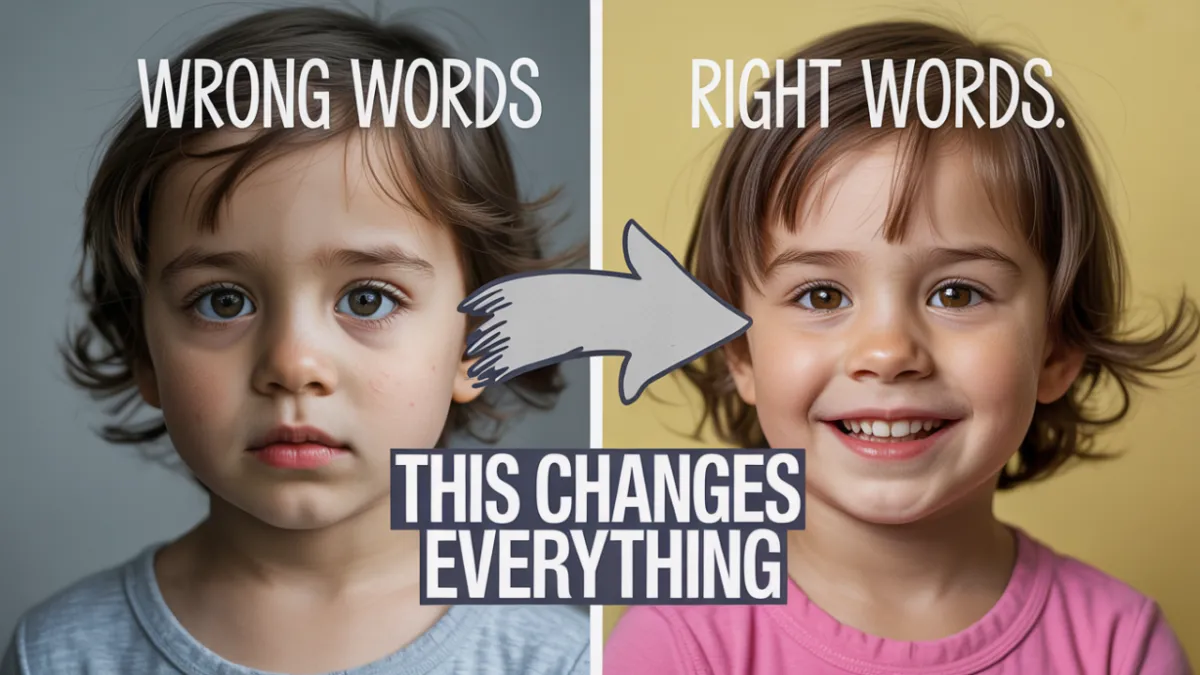
Do You Use These Common Phrases That Crush Your Child's Confidence?


The words we say to our children over and over again—day in and day out—make a huge difference in how they see themselves. Their self-esteem, self-efficacy, and confidence can grow—or shrink—depending on how we communicate.
How do you want to impact your child?
If you’re willing to take just a little extra effort to be mindful of your language and intentional with confidence-boosting phrases, you can help your child develop a healthy sense of self.
One of the parents in my coaching program recently asked for more examples of how to apply the concept of unconditional positive regard in daily parenting. This concept is about accepting and loving your child for who they are—not just for their achievements—and it's foundational to building strong self-esteem.
I created a handout with six categories of confidence-building phrases. Today, I’ll share three of the most impactful ones. Let’s begin with a big one: Shame-Based Discipline.
1. Say Goodbye to Shame-Based Discipline
Let’s jump right in with examples that bring this concept to life.
Avoid phrases like:
“You should be ashamed of yourself.”
“You’re embarrassing our family.”
“I’m so disappointed in who you are.”
These statements send the message that love, acceptance, or belonging are conditional on your child’s behavior or achievements. That contradicts the core of unconditional positive regard—valuing your child’s inherent worth, no matter what.
That doesn’t mean we avoid correction. It means we offer guidance without shame.
Instead, Try Supportive Problem-Solving:
“Let’s figure this out together.”
“I’m here to help you learn from this.”
“We all make mistakes—what can we do differently next time?”
These phrases maintain your child’s sense of belonging and self-worth, even in moments of correction. You’re reinforcing that love and support remain constant—while still setting boundaries and teaching life lessons.
2. Stop the Comparison & Competition
Another category to steer clear of? Comparing your child to others.
Avoid phrases like:
“Why can’t you be more like your sister?”
“Other kids your age don’t act this way.”
“You’re the worst-behaved child in your class.”
Comparisons can chip away at a child’s identity, planting seeds of inadequacy and resentment.
Instead, Try Affirming Their Inherent Worth:
“People vary in so many different ways, and you matter simply because you are uniquely you.”
“I’m so grateful to have you in my life.”
“You don’t have to earn my love—you already have it.”
These affirming statements boost your child’s self-esteem and help them feel valued for who they are—not who you or society want them to be.
You can also pair these affirmations with supportive problem-solving. For example:
“You don’t have to get good grades to earn my love—you already have that. But improving your grades will definitely make it easier for you to get into college. Let’s brainstorm some ways to earn better grades on your next report card.”
3. Avoid Threats of Abandonment
This one’s common, especially with younger kids in high-stress moments—like trying to get out the door in the morning.
We’ve all said something like:
“I’m leaving in 10 seconds—I hope you make it in time.”
But when threats escalate, the message becomes damaging.
Avoid phrases like:
“Maybe I should give you away.”
“I wish you were never born.”
“Go find another family if you don’t like it here.”
These comments—even said in frustration—can threaten a child’s sense of emotional safety.
Instead, Offer Emotional Safety + Boundaries:
“You seem to be having a tough time getting out the door. I would never leave without you, but we need to be in the car in 10 seconds to make it to school. Would you like to walk or have me carry you?”
“Your feelings are important to me, but let’s find a better way to say that.”
“I’m glad you came to me with this. It’s safe to tell me anything. Let’s talk through the best way to handle the situation now.”
These responses keep the door open for communication, build emotional resilience, and maintain your connection—all while holding appropriate boundaries.
Final Thoughts
It’s not just what you say, but also how you say it. Tone matters.
If you’re interested in exploring how your communication style can impact your child’s sense of trust and emotional security, I have another blog post you can check out next:
How to Avoid Causing Trust Issues in Your Child.
Want more strategies like these?
Join my newsletter for weekly tips, resources, and answers to real-life parenting challenges. You're not alone—and you're doing better than you think.
Learn more about my Better Behavior Blueprint program at drlindsayemmerson.com/workshop
